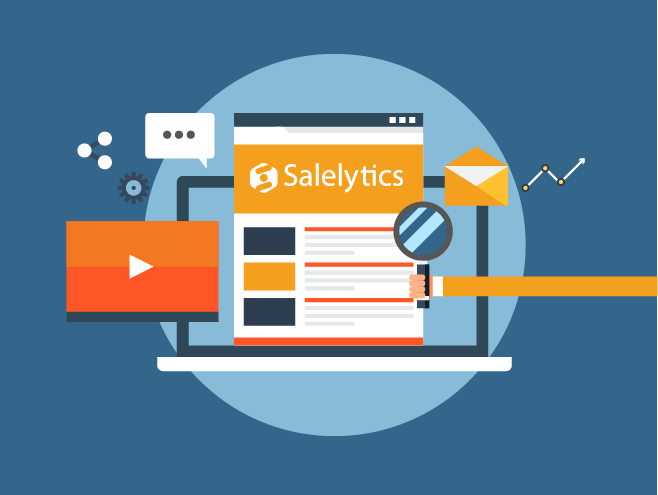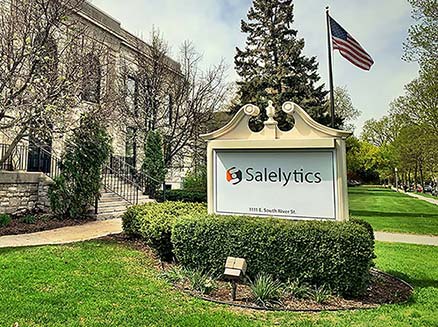In today's fast-paced digital landscape, the integration of Artificial Intelligence (AI) has become increasingly prevalent, promising efficiency, convenience, and innovation across various industries. However, as we delve deeper into the realm of AI, it's crucial to shine a spotlight on the often-overlooked dangers that come with its pervasive adoption. In this blog, we will explore the dark side of relying on AI and unveil the potential risks it poses to our society, privacy, and even our jobs. Join us as we navigate the treacherous waters of AI dependency and shed light on the critical concerns that should be on everyone's radar.
When you read the above paragraph, did anything seem off to you? Did you feel that nudge in the back of your subconscious that tells you something isn’t quite right? That’s because the paragraph above was completely generated by AI. When going through online articles, news stories, and even LinkedIn posts, you'll find many that share this slightly off, copy-and-paste esque quality. That’s why we’re going to break down why there is such a reliance on AI, when it should be used, and what to think about before using it.
The reliance on AI
The sheer amount of AI-generated content that currently exists on the internet is mind-blowing. When you click on a result on Google it feels like there is a 75% chance that it’s clearly Chat-GPT. There are some projections that have up to 90% of content on the internet being synthetically generated by 2026. Personally, that projection feels like an overreaction and a stretch, but it goes to show how much AI-generated content is being created and pushed out on a consistent basis. AI is slowly turning from a tool into a crutch. Instead of using AI to help convey a message or idea it’s being leaned on to create it. This results in the same concepts being repeated over and over again with nothing new really being created.
Now, there are times when AI is an extremely useful tool, but at the end of the day, that’s exactly what it should be. A tool.
By relying on AI to generate content, it slowly chips away the creative skills that you’ve spent years developing. This makes you more reliant on AI, which further deteriorates your skills. It’s a vicious cycle, and one that often provides an inferior product for the end consumer. AI often lacks the creative/personal flair that helps keep viewers engaged and helps them understand the message you are trying to get across. Whether it be an email or a blog article, AI-generated content tends to follow the same formula, and after a while, it tends to all look the same. In a world where there are so many distractions and so much content available, unoriginal content is a proverbial death sentence.
When to use AI
So when is it smart to use AI?
Now to be clear, when I say AI in this article, I’m focusing on generative AI. Generative AI models use neural networks to identify the patterns and structures within existing data to generate new and original content (Nvidia). These cover popular names like ChatGPT, DALL-E, and Midjourney.
You have to remember that when working with generative AI the answers it generates are created from patterns it recognizes in its existing dataset. For example, if the model had all of the works of Shakespeare in it, it would easily be able to produce a sonnet in the style of Shakespeare. But if the model had never heard of a bicycle, and you asked it to write a proposal for a bike company, you could end up with something completely different.
AI is meant to take over repetitive tasks in order to save humans so they can focus on high-level creative tasks.
Think of AI as your own personal intern. You can use it to figure out the line of code that’s been bugging you or write the outline of a LinkedIn post, but it’ll need some guidance along the way. If you can tell it exactly what to do there's a chance it’ll produce exactly what you want, but there’s also the chance that it misunderstands, or has a few good ideas but the meat of it needs to be improved upon.
So when it comes to generating anything creative, my personal recommendation is to use what the AI generates as a starting point, then tweak and add to it as needed. AI is an incredibly useful tool, it just doesn’t quite have the ability to create meaningful, creative, and personal content yet.
Other applications include being used as an interactive FAQ chatbot, responding to common questions customers or employees may have. Again, something that a person could do, but it doesn’t require outside-the-box thought as it’s mostly just repeating back a premade statement. Generative AI is a great tool for spell-checking written works, generating lines of code, or solving any other problem that has a documented solution. If the AI has seen it before it can replicate it, so in certain cases you can synthesize data and come up with interpretations too.
Things to think about when using AI
1. What is the model trained on?
The data used will directly affect the answers, so think of any biases the data may have and when the data was collected. For example, if the dataset was collected in 2022, it won’t contain any information learned after that point.
2. What are you trying to accomplish?
What message are you trying to convey? Does it need to be a never-before-heard realization or can it be a new version of an existing product? What medium do you want your answer to take? All of these are important when deciding if AI is the right tool for the job, what AI to use, and what prompt to use to get the best end product.
3. Is this a problem with an existing solution?
If you’re trying to solve a problem with a known solution, AI is the perfect tool. For example, you know that there’s a way to synthesize this data, or you want the code for an ordered list, or you want to rewrite a paragraph into the format of a sonnet, that’s the kind of thing that AI excels at, and will save you time doing essentially grunt work. Now if you’re trying to solve a problem that doesn’t yet have an answer, it is probably best to realize that the AI will just be guessing at the solution it gives you, and you are likely better off trying to figure it out on your own.
In conclusion
Generative AI is an incredibly powerful tool, but that's exactly how it should stay, a tool. With more and more content being entirely AI-generated, things with personalized attention and creativity have never stood out more. By using AI the way it was intended you can easily cut down the time needed to do routine tasks, letting you spend more time on the problems that only you can solve.

![Solutions]() Overview Full Account Management Funnel Development Sole Territory Coverage Team Sell Customer Care Patient Centric International Support
Overview Full Account Management Funnel Development Sole Territory Coverage Team Sell Customer Care Patient Centric International Support![Industries]()
![Technology]() Overview Omnichannel Experience Sales Enablement Strategy Optimization Data Science and Language Technology
Overview Omnichannel Experience Sales Enablement Strategy Optimization Data Science and Language Technology![Careers]()
![About]()
![About]() Careers Current Open Positions Work From Home Professional Development Salelytics Recruiting Team About Salelytics Our Locations Contact Us Blog
Careers Current Open Positions Work From Home Professional Development Salelytics Recruiting Team About Salelytics Our Locations Contact Us Blog





.jpg)

.jpg)
 (1).png)
 (1).jpg)